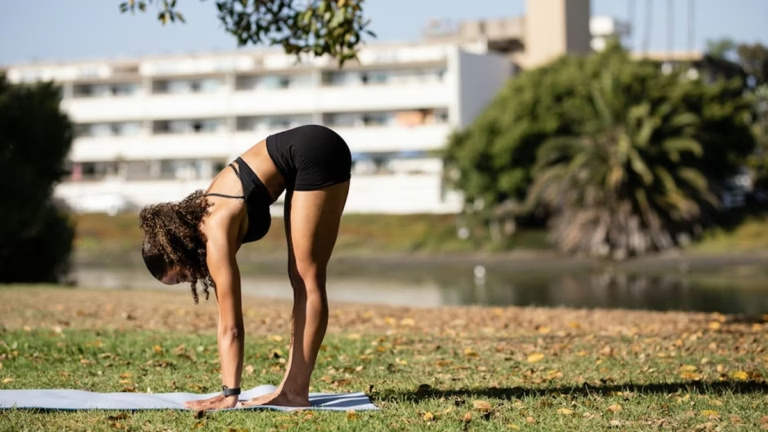IBS Flare-Ups: Navigating the Holiday Season – A Comprehensive Guide
The holiday season, a time of joy, celebration, and…stress? For those living with Irritable Bowel Syndrome (IBS), the holidays can often trigger uncomfortable and disruptive IBS flare-ups. The change in routine, the indulgent foods, and the added stress can all contribute to digestive distress. But don’t despair! With a little planning and knowledge, you can navigate the holidays and minimize the impact of IBS flare-ups.
Understanding IBS and Holiday Triggers
IBS is a chronic gastrointestinal disorder that affects the large intestine. Symptoms can include abdominal pain, bloating, gas, diarrhea, and constipation. While the exact cause of IBS is unknown, it’s believed to be a combination of factors, including gut motility issues, visceral hypersensitivity, and gut-brain interaction. The holiday season presents a unique set of challenges for individuals with IBS.
Common Holiday IBS Triggers
Identifying your personal triggers is the first step to managing IBS flare-ups during the holidays. Here are some common culprits:
- Dietary Changes: The holidays often involve rich, fatty foods, excessive sugar, and alcohol, all of which can exacerbate IBS symptoms.
- Stress: The hustle and bustle of holiday shopping, family gatherings, and travel can increase stress levels, leading to IBS flare-ups. Studies show a strong correlation between stress and IBS symptom severity.
- Changes in Routine: Disruptions to your regular sleep schedule, eating habits, and exercise routine can upset your digestive system.
- Travel: Traveling itself can be stressful and disrupt your routine, plus you may not have access to your usual safe foods.
- Large Meals: Overeating, a common occurrence during holiday feasts, can put a strain on your digestive system.
Strategies for Preventing IBS Flare-Ups During the Holidays
Prevention is key when it comes to managing IBS flare-ups. Here are some proactive steps you can take:
Dietary Planning and Modifications
Careful food choices are crucial for avoiding IBS flare-ups. Consider these IBS diet holiday tips:
- Plan Ahead: If you’re attending a holiday meal, offer to bring a dish that you know is safe for you. This ensures you’ll have at least one option that won’t trigger your symptoms.
- Portion Control: Be mindful of portion sizes. Overeating is a common trigger for IBS.
- Limit Trigger Foods: Identify your personal trigger foods and avoid them as much as possible. Common culprits include:
- High-fat foods
- Dairy products
- Gluten
- Artificial sweeteners
- Alcohol
- Caffeine
- Spicy foods
- Focus on Safe Foods: Emphasize foods that are generally well-tolerated, such as:
- Lean protein (chicken, fish, tofu)
- Well-cooked vegetables
- Low-FODMAP fruits (bananas, blueberries, grapes)
- Gluten-free grains (rice, quinoa)
- Stay Hydrated: Drink plenty of water throughout the day to aid digestion.
Stress Management Techniques
Managing stress is essential for minimizing IBS flare-ups. Try incorporating these techniques into your daily routine:
- Mindfulness Meditation: Practice mindfulness meditation to reduce stress and improve focus.
- Deep Breathing Exercises: Deep breathing can help calm your nervous system and reduce anxiety.
- Yoga: Yoga combines physical postures, breathing techniques, and meditation to promote relaxation and reduce stress.
- Regular Exercise: Physical activity can help reduce stress and improve overall well-being.
- Prioritize Sleep: Aim for 7-8 hours of quality sleep each night.
- Set Realistic Expectations: Don’t try to do everything. Delegate tasks and prioritize what’s most important.
Maintaining Your Routine
Even with the holiday craziness, try to stick to your regular routine as much as possible. This includes:
- Eating meals at regular times.
- Getting enough sleep.
- Exercising regularly.
Managing IBS Flare-Ups When They Occur
Despite your best efforts, IBS flare-ups can still happen. Here’s how to managing IBS symptoms when they arise:
Over-the-Counter Medications
Several over-the-counter medications can help alleviate IBS symptom relief. These include:
- Antidiarrheals: Loperamide (Imodium) can help reduce diarrhea.
- Laxatives: If constipation is a problem, try a gentle laxative like polyethylene glycol (Miralax).
- Antigas Medications: Simethicone (Gas-X) can help relieve gas and bloating.
- Peppermint Oil Capsules: Peppermint oil has been shown to help relieve abdominal pain and bloating.
Dietary Adjustments During a Flare-Up
During an IBS flare-up, it’s important to be extra cautious with your diet:
- Follow a Low-FODMAP Diet: This diet restricts certain types of carbohydrates that can be difficult to digest.
- Eat Bland Foods: Opt for easily digestible foods like plain rice, toast, and bananas.
- Avoid Trigger Foods: Strictly avoid any foods that you know trigger your symptoms.
- Stay Hydrated: Drink plenty of fluids to prevent dehydration.
When to Seek Medical Attention
While most IBS flare-ups can be managed at home, it’s important to seek medical attention if you experience any of the following symptoms:
- Severe abdominal pain
- Bloody stools
- Unexplained weight loss
- Persistent diarrhea or constipation
- Fever
A Case Study: Sarah’s Holiday IBS Success
Sarah, a 35-year-old with diagnosed IBS, used to dread the holidays. The rich foods and family stress consistently triggered severe IBS flare-ups. Last year, she decided to take a proactive approach. She planned her meals in advance, bringing a healthy, IBS-friendly casserole to each gathering. She also made time for daily meditation and gentle yoga. When she felt stressed, she practiced deep breathing exercises. As a result, Sarah experienced significantly fewer IBS flare-ups and was able to enjoy the holidays more than ever before. She found that identifying her holiday IBS triggers and proactively managing IBS were key to her success.
References
-
Centers for Disease Control and Prevention (CDC)
– Leading national public health institute of the United States. -
World Health Organization (WHO)
– Global authority on international public health. -
Mayo Clinic Healthy Lifestyle
– Evidence-based health advice from medical experts.
Conclusion
The holiday season doesn’t have to be a time of dread for those with IBS. By understanding your triggers, planning ahead, and incorporating stress management techniques, you can minimize IBS flare-ups and enjoy a more comfortable and joyful holiday. Remember to listen to your body, be kind to yourself, and don’t be afraid to ask for help. With the right strategies, you can navigate the holidays with confidence and ease.






